Showing 11-20 of 23 results
Cover Crops Seed Selection and Planting
Whether you are new to cover crops or an advanced user, hear from two experts on how they chose and seed their cover crops.
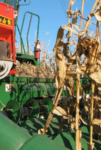
Cover Crops, Soil Health Principles and Maximizing Yields
Learn about basic soil health principles and how cover crops are key to making those happen on your farm.
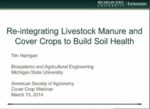
Combining Livestock, Manure and Cover Crops
A livestock and cover crop combination is the fastest way to profit from your investment.
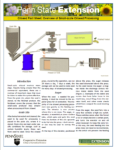
Safe and Profitable Oil Production Fact Sheets
Information on edible oil production for small-scale producers.
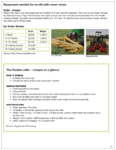
Cover Crops and No-Till Management for Organic Systems
This Rodale Institute fact sheet reviews the use of cover crops and no-till in organic systems, including selection, establishment and mechanical termination of cover crops; crop rotations; and energy and production budgets.

No-Till Farmer: Steward of the Land
Dan Forgey has farmed for 40 years based on the belief that if you take care of the land, it will take care of you, evidenced by his commitment to no-till, cover crops and crop diversity.

Growing Cover Crops with a Cash Crop
Dan Forgey describes how he grows cover crop mixes in synch with a cash crop of corn, and gets strong yields without chemical fertilizer.

Adding Cover Crops to a No-Till System
South Dakota farm manager Dan Forgey has improved soil quality and the bottom line by successfully introducing cover crops to his long-term no-till system.
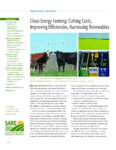
Clean Energy Farming
Clean Energy Farming: Cutting Costs, Improving Efficiencies, Harnessing Renewables features innovative SARE-funded research and examples of farmers who are improving energy efficiency while saving money, implementing farming practices that both save energy and protect natural resources, and producing and using renewable fuels.
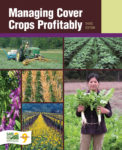
Managing Cover Crops Profitably, 3rd Edition
Managing Cover Crops Profitably explores how and why cover crops work and provides all the information needed to build cover crops into any farming operation.